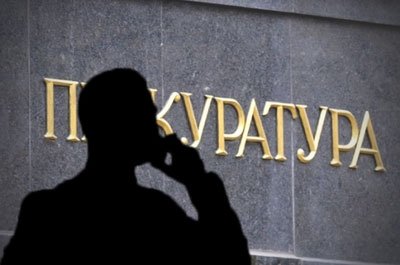Two key state institutions carry the prime responsibility to check and inform the public of illicit or ineffective spending of billions of state budget funds – the Bulgarian National Audit Office and the Public Financial Inspection Agency. Their strongest weapon against misconduct is – contrary to what one might expect – are not the fines or sanctions, but the fact that their reports are public. That is, the right of the people to be informed of the mismanagement of public money, and perhaps to hold representatives accountable in subsequent elections.
Or at least this is the idea of how these mechanisms of balance of powers work in a country governed by rule of law.
It is no coincidence that in its research report on the success and failures of Bulgarian governments in the period 1998-2020 the economists at the Institute for Market Economy analyzed the work if the state administrations through the audit reports of the National Audit Office. Based on all 1035 audit reports for the two decades in question, the researchers calculated that nearly half of audited expenses – over 82 billion leva – can be described as failed, meaning either spent ineffectively or as part of misconduct.
The economists have managed to make this assertion thanks to the fact that a significant chunk of the audit reports is public domain. What would be, though, if we take out the public from the equation? It turns out that via a section in the law a lot of the uncovering from the financial controllers could never see the light of day. This is true for key audits by the National Audit Office and even more so for findings by the Public Financial Inspection Agency, which is part of the executive branch, and which apparently informs the Prosecutor’s Office of discoveries much more often.
Half of the reports by the PFIA are sent to the Prosecutor’s Office
In theory mass sending of reports by financial inspections to the Prosecutor’s Office sounds like good news because it means the institutions are actually taken up the task of investigating misuse and abuse of state money. Mediapool.bg sources, familiar with the work of the PFIA say that sending findings to the Prosecutor’s Office is in fact is used to hide them from the public.
Last July the financial inspection refused to provide Mediapool.bg with two audit reports from the deepening of the Varna lake worth 300 million leva. The reason they gave was that the documents were handed over to a prosecutor who wanted for the information to not be publicized.
The Prosecutor’s Office has the right to withhold information about its methods for investigating a case. At the same time, discoveries about bypassing the Public Procurement Act, low quality work and the fact that priority was given to extend the rout to Ahmed Dogan’s TPP’s port made by the Varna-based journalist Saps Spassov were published.
At the end of last year Mediapool.bg sent an inquiry to the PFIA asking for the list of all audit reports that have been sent to the Prosecutor’s Office for the last two years. This time the agency answered quickly and on point the media’s questions, and the data provided only confirmed the initial suspicions.
In 2021 the financial inspection has produced 440 reports from preformed audits of various institutions and state-owned enterprises. A total of 243 were handed over to the Prosecutor;s Office rendering them hidden from the public.
The most interesting audits are in this group” of Burgas Municipality, Varna Municipality, Sliven Municipality, Sofia Municipality, Road Infrastructure Agency and more. A curious detail here is that only the audit report if the State Agency for Gambling was published on the agency’s website as this served the current interests of the Prosecutor’s Office regarding the cases against gabling tycoon Vassil Bozhkov.
The situation with the audit reports, sent to the Prosecutor’s Office in 2021 is similar. During that time the PFIA produced 410 reports, the Prosecutor’s Office received nearly half of them. In this pool are audits of Sofia Municipality, Blagoevgrad Municipality, the state-owned Railway Infrastructure, Medical University – Sofia, the state-owned Irrigation Systems, Pirogov Hospital, prisons and many more.
A lot of the audits done by the agency are performed at the Prosecutor’s Office request, others are initiated by the agency itself or a minister. Regardless of who ordered the audits, if the results are sent to the prosecutors, the information is in the hands of the investigators. Once there, data tends to get lost in a black hole.
The case with the checks for the deepening of the Varna lake is telling for this tendency. Later it was revealed that only the first check by the agency was sent to the prosecutors – the one that did not find wrongdoing.
The National Audit Office has not made public parts of 32 audits
The National Audit Office also has a problem with making audits public, although fewer of them end up in the Prosecutor’s Office. The office checks not only the lawfulness but also the degree of efficiency in public money spending. Making public the office’s findings and conclusions is key for the effectiveness of its work because it directly impacts not only administrative and criminal accountability but also political accountability from the governing elites.
According to Article 59 of the National Audit Office Act, the institution must publish those audits, which do not contain confidential information, protected by law. At the same time, however, Article 58 states that if an audit finds evidence of wrongdoing, the office should hand over the audit and related materials to the Prosecutor’s Office, in which case the office cannot release information before the investigation is over.
To answer a question by Mediapool, the National Audit Office said that in the last eight years (between 2015 and February 2023), the office has sent 34 partial or entire audit reports. 30 are published on the office’s website, minus the sections which are with the prosecutors; two are published in their entirety, as they have been sent by the prosecutors to be used in investigations (the reports for Highways and the execution of the state budget in 2018); two reports were never published as they have been sent to the prosecutors in their entirety. The latter two are for the audit of the state-owned Montazhi (Constructions) and Nauchno-proizvodstwen centar (Scientific Manufacture Center). The unpublished whole or partial reports are still not public, although in some cases years have passed since their arrival at the Prosecutor’s Office.
Shielding the audit of the state-owned Montazhi in the Prosecutor’s Office led to a public scandal, because it obstructed the unveiling of the outrageous spending of about 500 million leva, allocated by the GERB government in 2019 for dam renovations. The leader of the Bulgarian Socialist Party and then deputy-PM in Kiril Petkov’s cabinet, Korneliya Ninova complained at the time that she had not been allowed to reveal to the public corruption practices in the State Consolidation Company because the audit report of Montazhi by the National, Audit Office was classified in its entirety since it contains information about misconduct. Back then it became clear that the document was requested by the Prosecutor’s Office in the fall of 2021 and the auditing body had no other choice than to hand it over to be classified by investigators.
Although the text in the law that aim to protect investigations of financial wrongdoing, are theoretically sound, practice shows that in many cases the provisions are misappropriated in a way to cover up financial misconduct by state or municipal institutions or enterprises. All this suggests the need to change these laws in a way to ensure that the secrecy of the investigation does not obstruct the public’s right to know in due time about misused public money by those whom the public has appointed to govern said money and represent them.
The Bulgarian version of this text can be found here.
Ключови думи
За честна и независима журналистика
Ще се радваме, ако ни подкрепите, за да може и занапред да разчитате на независима, професионална и честна информационно - аналитична медия.
 0 коментара
0 коментара
Екипът на Mediapool Ви уведомява, че администраторите на форума ще премахват всички мнения, съдържащи нецензурни квалификации, обиди на расова, етническа или верска основа.
Редакцията не носи отговорност за мненията, качени в Mediapool.bg от потребителите.
Коментирането под статии изисква потребителят да спазва правилата за участие във форумите на Mediapool.bg
Прочетете нашите правила за участие във форумите.
За да коментирате, трябва да влезете в профила си. Ако нямате профил, можете да се регистрирате.





